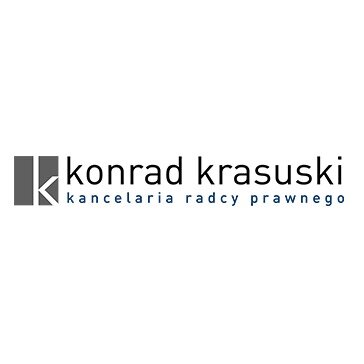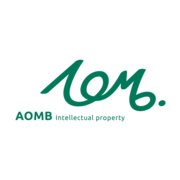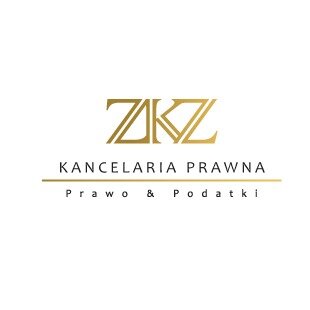Best Intellectual Property Lawyers in Poland
Share your needs with us, get contacted by law firms.
Free. Takes 2 min.
Or refine your search by selecting a city:
List of the best lawyers in Poland
About Intellectual Property Law in Poland
Intellectual Property (IP) law in Poland is designed to protect the rights of creators and inventors by granting them exclusive rights to their creations and innovations. This field encompasses several areas, including copyrights, trademarks, patents, industrial designs, and geographic indications. The protection and enforcement of IP are governed by both national laws and international treaties to which Poland is a party, such as the TRIPS Agreement, the Paris Convention, and the Berne Convention. In Poland, the main institution responsible for IP matters is the Polish Patent Office (Urząd Patentowy RP), which plays a key role in granting and registering patents, trademarks, and designs.
Why You May Need a Lawyer
There are several common situations where you may require legal help in the field of Intellectual Property in Poland. These include:
- Registering and protecting a trademark, patent, or design.
- Dealing with IP infringement cases or disputes.
- Drafting and negotiating licenses and contracts involving IP rights.
- Advising on IP strategy and management for businesses.
- Handling issues related to copyrights, such as plagiarism or unauthorized use of work.
Legal professionals with expertise in Intellectual Property can provide critical guidance and representation in these situations to ensure your rights are protected and enforced.
Local Laws Overview
Key aspects of local IP laws in Poland include:
- Trademarks: Governed by the Act on Industrial Property Law, trademarks must be distinctive and not deceptive or misleading.
- Patents: Protect inventions that are new, involve an inventive step, and are industrially applicable. Patent protection lasts 20 years from the filing date.
- Copyrights: Automatically granted upon creation of a work and last for the lifetime of the creator plus 70 years.
- Designs: Must be new and have an individual character. Registration provides protection for up to 25 years.
- Enforcement: Infringements can be addressed through civil actions, and in some cases, criminal sanctions may apply.
Frequently Asked Questions
What is the process for registering a trademark in Poland?
To register a trademark, you must file an application with the Polish Patent Office, including details about the trademark and its intended use. The process involves examination for absolute grounds and relative grounds if there are oppositions.
How can I protect my invention in Poland?
You can protect your invention by applying for a patent with the Polish Patent Office. Ensure your invention is novel, involves an inventive step, and is capable of industrial application.
What are the fees associated with IP registration in Poland?
Fees vary depending on the type of IP protection sought. They include application fees, examination fees, and renewal fees. Specifics can be found on the Polish Patent Office’s website.
How long does IP protection last in Poland?
Patents last for 20 years, trademarks can potentially be renewed indefinitely, copyrights last for 70 years after the creator’s death, and designs are protected for 25 years.
What do I do if I find someone infringing on my IP rights?
Contact an IP lawyer and consider sending a cease-and-desist letter. If necessary, you may pursue legal action in court. Civil remedies or, in some cases, criminal penalties might apply.
Can I enforce foreign IP rights in Poland?
Foreign IP rights can be enforced in Poland if registered with international treaties, such as the Madrid Protocol for trademarks or the European Patent Convention for patents.
What is the role of the Polish Patent Office?
The Polish Patent Office is responsible for granting and maintaining IP rights such as patents, trademarks, and designs within Poland.
Is it possible to license my IP in Poland?
Yes, IP rights can be licensed to others. It is advisable to have a lawyer draft and review any licensing agreements to ensure terms are clear and protect your interests.
What happens if my IP application is opposed?
If your application is opposed, you will have an opportunity to respond to the objections raised. A legal advisor can help craft an appropriate response and defense.
How does Poland handle IP related to the Internet?
Poland addresses IP issues on the Internet through existing IP laws, adapted to cover online activities. Legal advisers can help navigate complex cases of online IP infringement.
Additional Resources
Here are some resources and organizations that can be helpful:
- Polish Patent Office (Urząd Patentowy RP): Primary institution for IP registration and issues.
- WIPO (World Intellectual Property Organization): Provides international assistance and guidance on IP matters.
- EPO (European Patent Office): Information and services regarding European patents available in Poland.
- Local law firms: Specializing in IP law, can offer tailored advice and representation.
Next Steps
If you need legal assistance in Intellectual Property:
- Consult with a specialized IP lawyer in Poland to discuss your situation and determine the best course of action.
- Gather all necessary documentation related to your IP asset or issue.
- Consider contacting the Polish Patent Office for specific inquiries or assistance.
- Engage in proactive IP management to safeguard your creations and rights.
Understanding intellectual property law and having the right legal support are key to effectively managing your IP assets in Poland.
Lawzana helps you find the best lawyers and law firms in Poland through a curated and pre-screened list of qualified legal professionals. Our platform offers rankings and detailed profiles of attorneys and law firms, allowing you to compare based on practice areas, including Intellectual Property, experience, and client feedback.
Each profile includes a description of the firm's areas of practice, client reviews, team members and partners, year of establishment, spoken languages, office locations, contact information, social media presence, and any published articles or resources. Most firms on our platform speak English and are experienced in both local and international legal matters.
Get a quote from top-rated law firms in Poland — quickly, securely, and without unnecessary hassle.
Disclaimer:
The information provided on this page is for general informational purposes only and does not constitute legal advice. While we strive to ensure the accuracy and relevance of the content, legal information may change over time, and interpretations of the law can vary. You should always consult with a qualified legal professional for advice specific to your situation.
We disclaim all liability for actions taken or not taken based on the content of this page. If you believe any information is incorrect or outdated, please contact us, and we will review and update it where appropriate.
Browse intellectual property law firms by service in Poland
Poland Attorneys in related practice areas.
Browse intellectual property law firms by city in Poland
Refine your search by selecting a city.
















